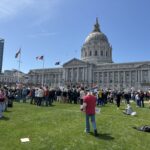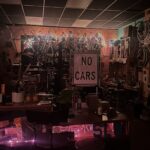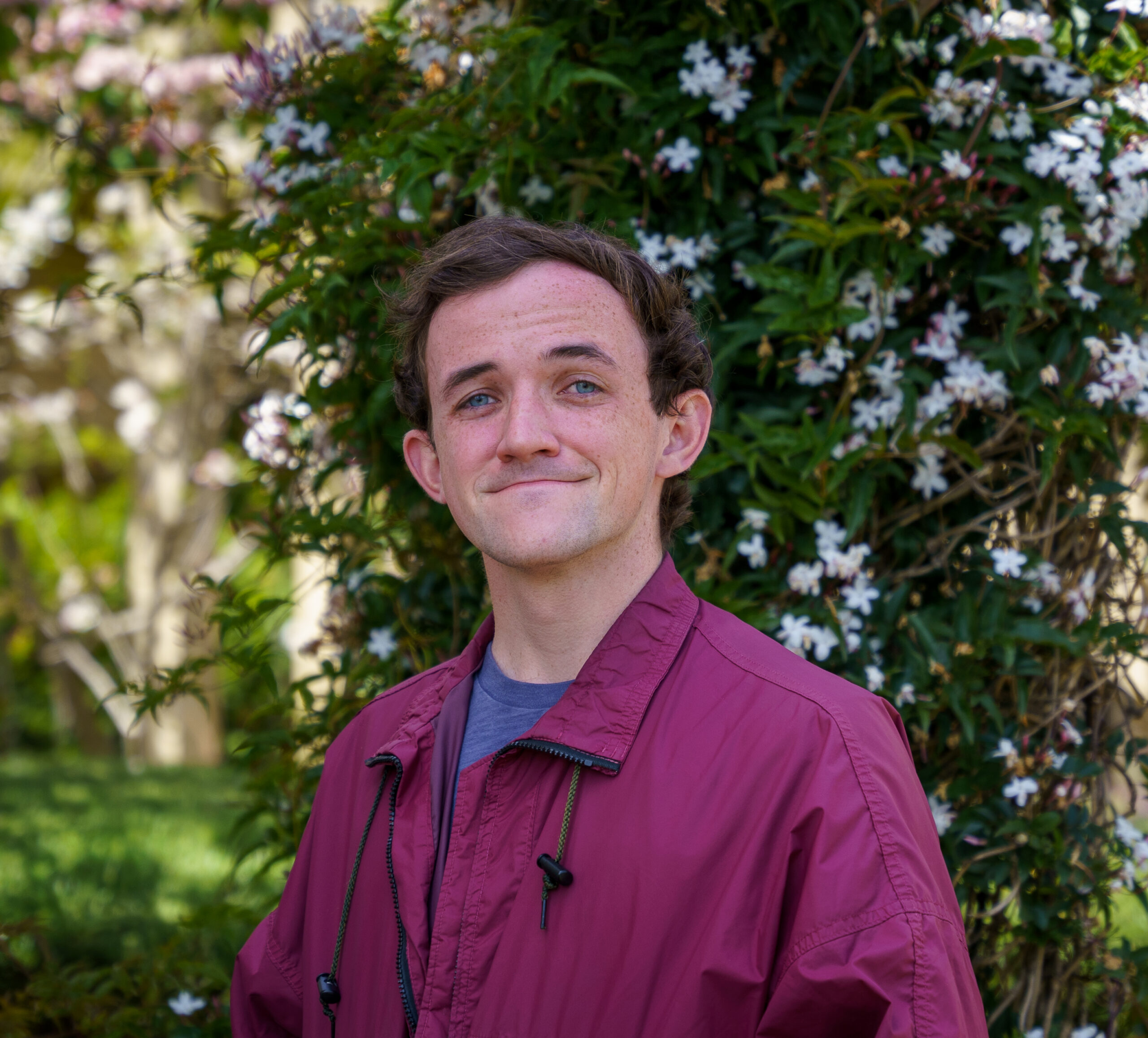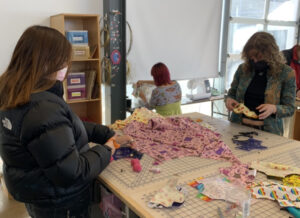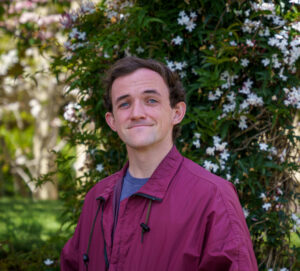
photo by Odin Marin
While his time at Lick-Wilmerding was brief, Owen Driscoll has become a well-known figure within the community. Hired over Zoom as a Teaching Assistant in 2020, Driscoll accepted the position after working a job in education the summer prior. He came in as one of nine TAs during the hybrid learning period and has helped facilitate a multitude of classes.
Originally from Ojai, California, Driscoll grew up all over the country. He spent his childhood living in Cambridge, Massachusetts and Cleveland, Ohio, where he got his first job. “I had a habit of working whimsical, old-timey jobs. I was ten years old when I got my first job as a newspaper boy for the Cleveland Sun Press.” His family eventually moved back to the Bay Area just before he began boarding school.
Driscoll attended high school at the Thacher School in Ojai, where he fell in love with the outdoors and developed an interest in environmental education. During his time in high school, he joined his school climbing team and went on several camping trips in the High Sierras and Joshua Tree National Park.
A self-described bookish kid, Driscoll has a passion for chemistry, particularly when it comes to cooking and baking. One book Driscoll recommends to anyone who finds the chemistry of baking interesting is “Ratio” by Michael Ruhlman. “The book reduces different kinds of bread, cakes and pastries to the fundamental ratios of components that take up a recipe,” Driscoll said. “It explains why those ratios matter and why they produce the products they do. Often when people bake, they tend to think, ‘Oh, I’ll just toss this in.’ Then everything goes catastrophically wrong very quickly. And they never do that again.”
After graduating from Thacher in 2015, Driscoll attended Columbia University, where he received a degree in environmental chemistry. He credits his interest in environmental chemistry to his time in high school. He often would think about how what he learned applied to his daily life. Driscoll described a drought that happened when he was in high school: “there were days after sports practice when I would turn on the shower and the water smelled like rotten eggs because the aquifer had gotten so low that it was pulling up sulfur from the bottom. It was a stark reminder that this resource we constantly rely on is heavily overtaxed.”
During his time at Columbia, Driscoll did most of his undergraduate work on pollution remediation. He worked in two major labs during college, one that focused on lead pollution in New York City and another on arsenic poisoning in groundwaters in Bangladesh. “If I was going to go back into academia and back into research, I would love to be involved in any kind of water control.”
Along with his studies, Driscoll worked on a few outreach programs that were designed on science education for youth. Driscoll also previously held a TA position at Columbia where he helped post-baccalaureate pre-med students with general chemistry prerequisite classes.
As Driscoll looks to his future after working at LWHS, he hopes to get into the graduate school application cycle for next year. “I’m looking at either a master’s of science and engineering or a master’s in education or maybe even something more along the lines of a Ph.D., like academic research,” he said.
When reflecting upon his time at LWHS, Driscoll said that it was hard for him to pick just one highlight. “Working at LWHS is a culmination of different odds and ends,” he said. “When I’m interacting with students, I get to see so many different facets and interesting sides of the same students. It’s wonderful to discover the myriad of ways that the intellect and creativity of students comes through,” he said.

